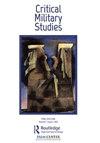The metadata-driven killing apparatus: big data analytics, the target selection process, and the threat to international humanitarian law
Q1 Arts and Humanities
引用次数: 0
Abstract
ABSTRACT This article explores the role of metadata analytics in the target selection process to show how such analytics undermines the fundamental principle of international humanitarian law, that is, the principle of distinction between combatants and civilians. The central part of the article is divided into three sections. The first section provides a brief overview of how international humanitarian law draws the line between civilians and legitimate military targets (e.g. members of armed forces, paramilitary groups, organized armed groups, and civilians directly participating in hostilities) in both international and non-international armed conflicts. The second section explores the use of metadata analytics in the target selection process by focusing on two programs, the Real Time – Real Gateway (RT-RG) and SKYNET, developed by the United States to detect deviant ‘terrorist’ behaviour. The third section provides new insights into how metadata analytics creates the circumstances for violations of the principle of distinction. This section focuses on four characteristics of metadata analysis that undermine the principle of distinction (e.g. the inability to make qualitative distinctions between potential targets, the uncertainty of results, the incorporated margin of error, and the unpredictability of target determinations).元数据驱动的杀戮装置:大数据分析、目标选择过程和对国际人道主义法的威胁
本文章由计算机程序翻译,如有差异,请以英文原文为准。
求助全文
约1分钟内获得全文
求助全文
来源期刊

Critical Military Studies
Arts and Humanities-History
CiteScore
1.90
自引率
0.00%
发文量
20
期刊介绍:
Critical Military Studies provides a rigorous, innovative platform for interdisciplinary debate on the operation of military power. It encourages the interrogation and destabilization of often taken-for-granted categories related to the military, militarism and militarization. It especially welcomes original thinking on contradictions and tensions central to the ways in which military institutions and military power work, how such tensions are reproduced within different societies and geopolitical arenas, and within and beyond academic discourse. Contributions on experiences of militarization among groups and individuals, and in hitherto underexplored, perhaps even seemingly ‘non-military’ settings are also encouraged. All submitted manuscripts are subject to initial appraisal by the Editor, and, if found suitable for further consideration, to double-blind peer review by independent, anonymous expert referees. The Journal also includes a non-peer reviewed section, Encounters, showcasing multidisciplinary forms of critique such as film and photography, and engaging with policy debates and activism.
 求助内容:
求助内容: 应助结果提醒方式:
应助结果提醒方式:


